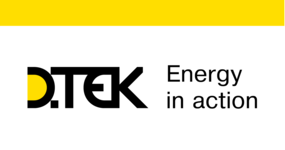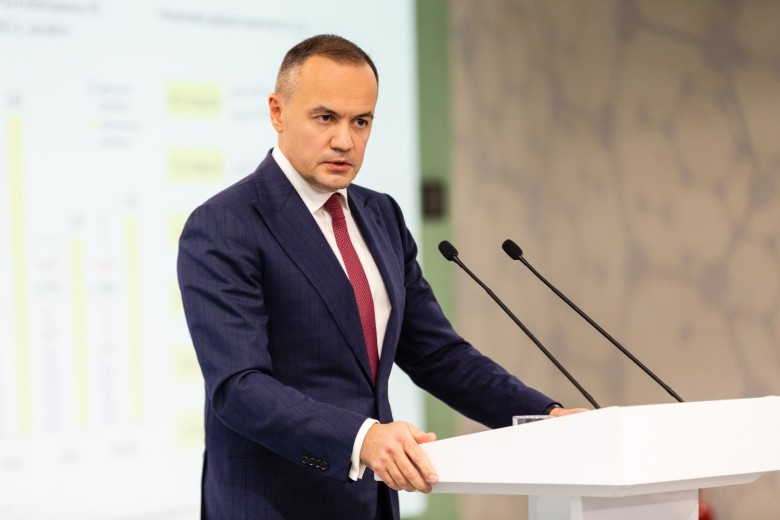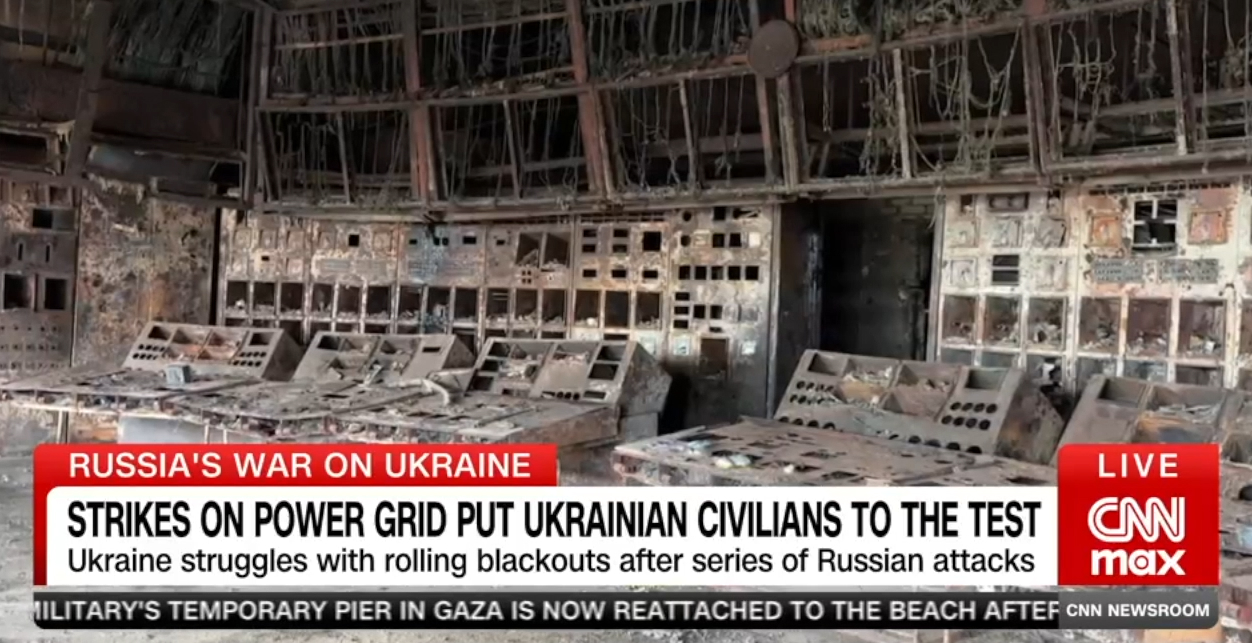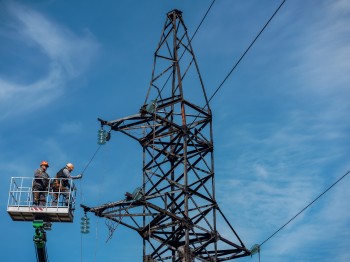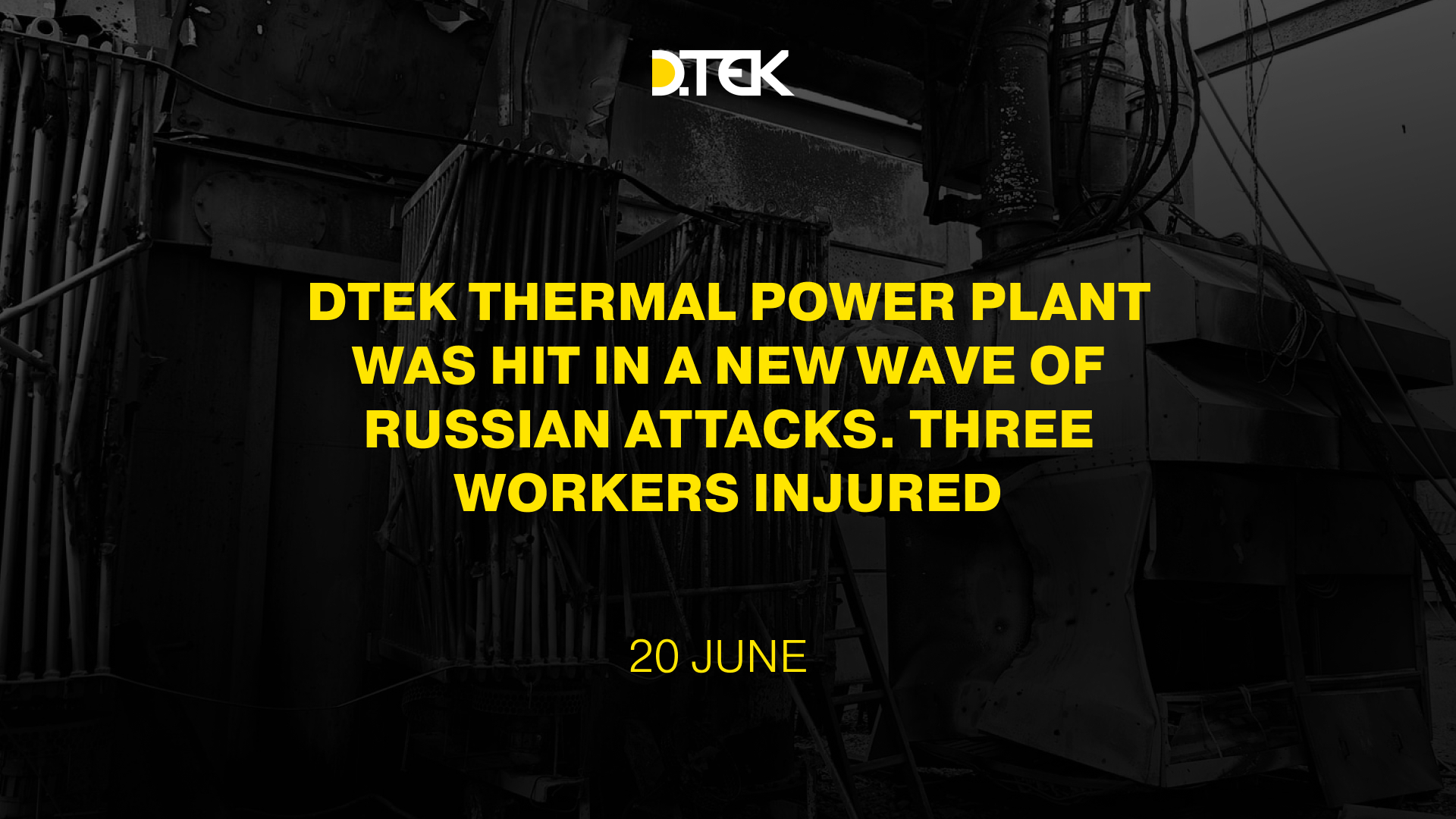As energy companies in Ukraine work to restore and rebuild sections of the nation's power grid damaged by Russian military action, the country is also preparing for a future centered around renewables and a potentially lucrative role as an electricity exporter to Europe.
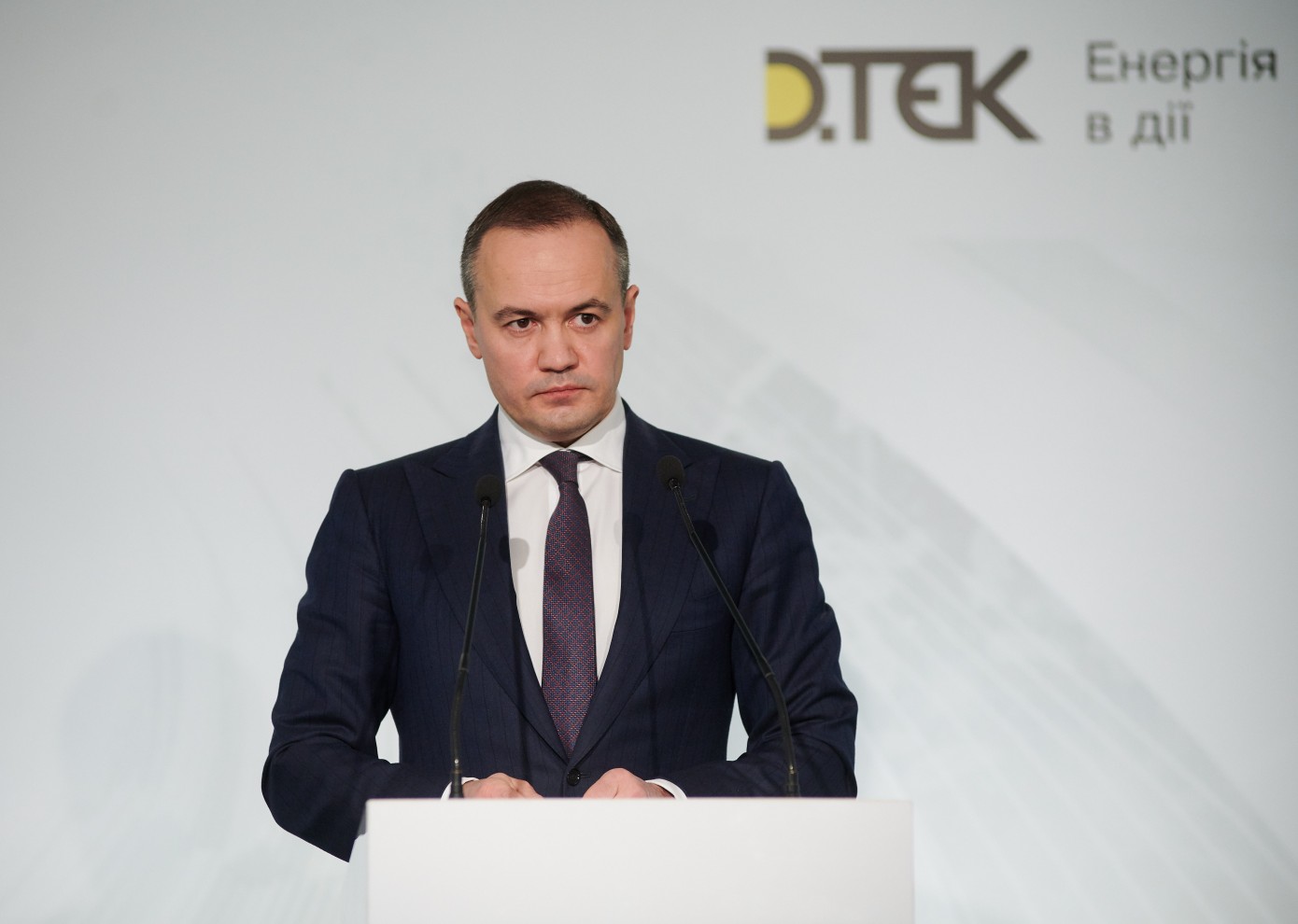
So far, Russia's invasion is estimated to have caused more than $100 billion of damage to Ukraine's critical infrastructure. For companies like DTEK Holdings Ltd., the energy group owned by Ukraine's industrial magnate Rinat Akhmetov, that means a massive, but vital, restoration job.
"When people know that they're responsible for light and warmth and operation of the whole country ... to protect this is the major source of motivation," DTEK CEO Maxim Timchenko said in a July 22 interview. "We call ourselves fighters also."
DTEK's sprawling footprint includes thermal and renewable power generation, along with transmission lines that span more than 188,000 kilometers. The company has restored electricity for more than 3.1 million people since the war began — in some cases multiple times due to repeated Russian shelling — and it estimates that 1.5 million people in its service territory were still without power as of July 25.
In Donetsk, one of the worst-hit regions of Ukraine, the company will have to rebuild the entire grid, Timchenko said.
"Our people try to do whatever is possible in the Donetsk region [to restore power], but it gets destroyed again," the CEO told reporters in a July 21 briefing. "It's a neverending story."
While some of its infrastructure has been damaged, assets located in Russian-occupied territories are simply unreachable.
DTEK lost control of its Lugansk Thermal Power Plant in the early days of the invasion and is unable to send workers or fuel to the Zaporizhzhia Thermal Power Plant. The latter stands adjacent to state-owned Energoatom's Zaporizhzhia Nuclear Power Plant — the largest of its kind in Europe at 6 GW — which was seized by Russian troops in early March.
About 90% of Ukraine's wind capacity and 30% of solar parks are offline because they are in occupied territories, Timchenko said.
The loss of renewables and fossil-fired plants during the invasion has led to an increase in the share of nuclear in Ukraine's power mix, Timchenko said, adding that consumption is down by about one-third compared to 2021.
Ukraine exports power to Europe
DTEK returned power to Kyiv just 45 days after Ukraine regained control of the region on April 2. The company called the task a "massive network restoration of such a scale that the Ukrainian energy sector has never experienced throughout its history."
Timchenko is keen to underscore the need to not just repair damaged infrastructure but to also focus on adding new forms of generation like renewable energy. The country is aiming to reach 50% renewables by 2030, which will require 30 GW of wind and solar.
"We have very good conditions to build a lot of renewables," Timchenko said, pointing to Ukraine's strong wind speeds and solar irradiation, its good land availability and its "much less bureaucratic" development phase compared to elsewhere in Europe. The CEO acknowledged, however, that foreign investors would require military risk protection if they are to return.
.jpg)
Any new renewables built in Ukraine would not only provide clean power at a national scale but could also be utilized by the country as part of its new, and perhaps unlikely, role as an electricity exporter to Europe.
Ukraine's power transmission system was disconnected from the Russian and Belarus grids Feb. 24, the day that Russia's invasion began. On March 16, it began a trial synchronization with continental Europe.
"March 16 was extremely important for the future of our energy sector," Timchenko said, with the trial paving the way for commercial power trading between Europe and Ukraine to begin at the end of June.
While the original intention of the link-up was to funnel power from Europe to Ukraine's war-torn grid, what actually happened was the exact reverse, with Ukraine instead becoming an exporter of electricity to Europe. A large section of the country's generation assets has remained in stable operation. Combined with the drop-off in consumption, this meant it had excess power, which its European neighbors have welcomed due to sky-high power prices in their own countries.
Today, about 320 MW is being fed to neighboring European markets like Poland, Slovakia and Romania, including from a power station owned by DTEK, Timchenko said.
"It's in our mutual interest to expand this capacity," the CEO added, outlining that commercial power export to Europe could grow to 1.5 GW by the end of the year and to as much as 10 GW within a decade.
'You cannot rationally accept it'
As Ukraine embarks on its energy transition, Europe too is rethinking its energy relationship with Russia. Less than two weeks into the war, the European Commission unveiled a sweeping plan to end the EU's reliance on Russian energy imports. The REPowerEU strategy includes diversifying the bloc's gas supplies and ramping up renewables deployment.
"Sooner or later, everybody will realize that Russia, under the current leadership, cannot be a reliable supplier," the CEO said. "I hope it will come to a point where it will be a criminal offense to buy something from Russia."
Timchenko welcomed recent measures from the commission to prepare for Russian gas to stop flowing for this winter. While the gas rationing plan is aimed at the European industry, it calls on all consumers to do their part to use less gas in preparation for winter.
The CEO acknowledged that the EU measures require "some kind of sacrifice" from Ukraine's European neighbors, with consumers having to stomach potentially higher electricity and gas prices for a while. However, "my personal opinion is that it's incomparable to the price we pay," Timchenko said.
Indeed, the war has had a massive human toll on Ukraine, and DTEK itself has suffered. At the press briefing on July 21, Timchenko announced that 56 employees had been killed since the conflict began. By July 22, the number had risen to 59. While the majority died on the battlefield, two died while working to restore electricity.
"That's the most difficult thing. You cannot rationally accept it," Timchenko said. "But you have to fight. When you see that we keep such unity in the country, in the company, then I would call it collective power."
Reed full article here . Alex Blackburne.
